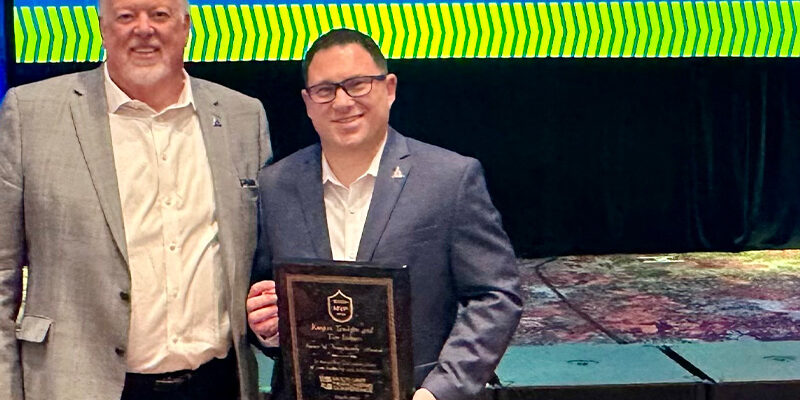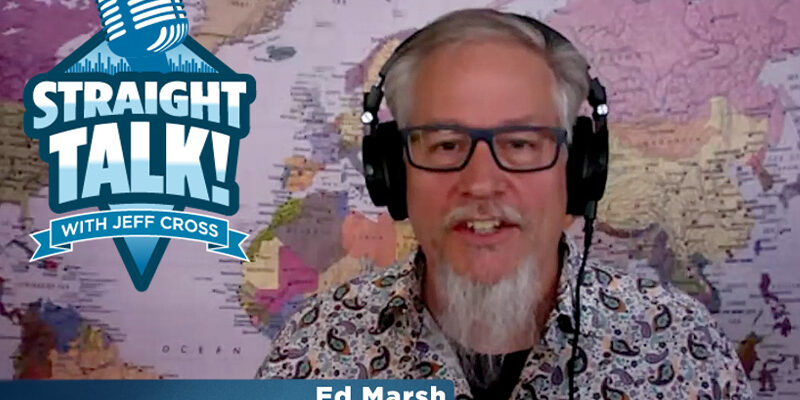The Power of Persistence

In his book The Heart of a Leader: Insights on the Art of Influence, Ken Blanchard tells a story about Sir Winston Churchill. It seems that toward the end of his public life, Churchill accepted an invitation to give a speech at the English prep school he attended as a young boy.
Blanchard quotes the headmaster of the school at the time, who told the students, “This is a historic moment. Winston Churchill is the greatest speaker in the English language. Write down everything he says. He will make an unforgettable speech!”
As Blanchard tells it, the day that Churchill gave his speech, he looked over the top of his glasses and said to the excited audience of young boys “Never! Never! Never! Never! Give up!” With that, Churchill turned around and sat down. The headmaster was quoted later as saying, “This may have been one of Churchill’s greatest speeches.”
Over the years, much has been written on the power of persistence. We see it in our successful sports teams, we see it in our successful schools, in our churches, in our communities and in our world. The question is, do we see this same level of persistence in ourselves as business owners, managers and leaders?
Or do we allow the frustrations of dealing with the small percentage of what we call “actively disengaged employees” to cloud our thinking into a mindset of, “I work my tail off, I make all kinds of personal sacrifices to give my employees a good job, and nobody cares or appreciates it”?
Let’s face it, it is very easy to fall into the trap of giving up. Each and every day in the workplace things can take place that frustrate you, overwhelm you and cause the feeling of wanting to walk away and never look back.
There are countless examples of individuals or organizations that “failed” yet never gave up. There are real people who may have been considered underdogs who, today, are considered heroes because they persisted, stayed on course and met or even exceeded their goals. Let’s look at some examples.
- Michael Jordan was cut from his high school basketball team for not being good enough.
- Abraham Lincoln joined the Army as a Captain and left as a Private.
- Henry Ford’s early businesses failed and left him bankrupt, more than once, before he founded Ford MotorCompany.
- Walt Disney went bankrupt after failing at several businesses. He was terminated from anewspaper for not being creative enough.
- Albert Einstein was thought to be mentally handicapped before changing the face of modernphysics and winning the Nobel Prize.
- Thomas Edison made 1,000 attempts before inventing the light bulb. His teachers also told himgrowing up that he was too stupid to learn anything.
- J. K. Rowling was a divorced, single mother barely surviving on welfare, severely depressed, reportedly contemplating suicide, who was going to school while writing the first Harry Potter book. Rowling went from needinggovernment assistance to being one of the richest women in the world in a five-year span.
- Bethany Hamilton, at the age of thirteen, lost her left arm and almost died after being attacked by a shark. A short two years later, she won the NSSA National Championship, Explorer Women’s division.
- Finally, probably one of the most recognizable examples of persistence is Helen Keller. Though an illness left her deaf and blind as a baby, she learned to communicate with others, went to college and graduated cum laude from Radcliff in 1904 at the age of twenty-four.
So what is the one key characteristic that separates all of these individuals from the rest of society? You guessed it: Persistence! Each and every one of them set goals and stuck to those goals. They measured themselves often and persevered through hardships and frustrations.
It is widely reported that Benjamin Franklin, in his persistent desire to be a better man, did not leave much room for subjectivity. He identified goals and developed systems to track and measure his progress. Centering himself around thirteen virtues, Franklin developed a plan to live by them. The key to his success was that he measured himself not yearly, not monthly, not weekly, but daily. At the end of every day he asked himself, “Did I reach my goal today?”
As you face the tremendous challenges and obstacles business owners, managers and leaders deal with in the 21st century workplace, I would encourage you to keep in mind what the 30th U.S. President, Calvin Coolidge, once said: “Nothing in the world can take the place of persistence. Talent will not; nothing is more common than unsuccessful men with talent. Genius will not; unrewarded genius is almost proverb. Education will not; the world is full of educated derelicts. Persistence and determination alone are omnipotent.”
Never, never, never, never give up!
Scott Tackett is a Business Development Advisorfor Violand Management Associates (VMA), a highly-respected consulting company in the restoration and cleaning industries. He is considered the leading expert in restoration and cleaning for Human Resource Development and Organizational Leadership with over 30 years of experience. Through Violand, Tackett works with companies to develop their people and profits. To reach him, visit Violand.com or call (800)360-3513.












